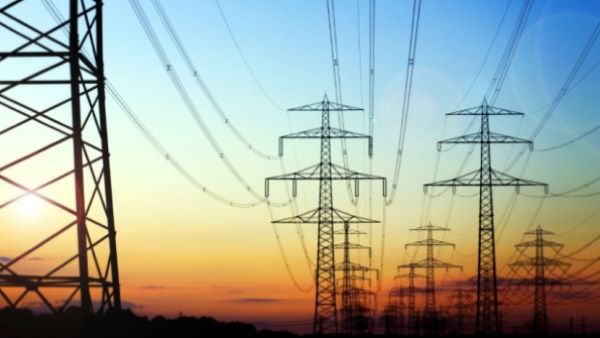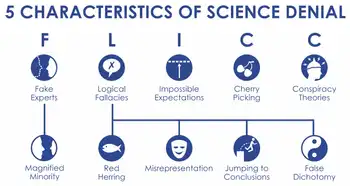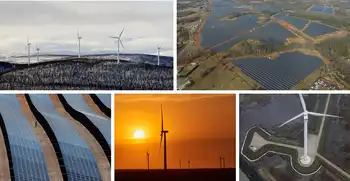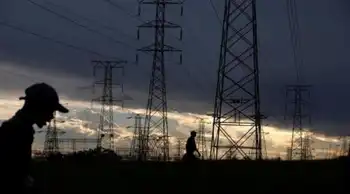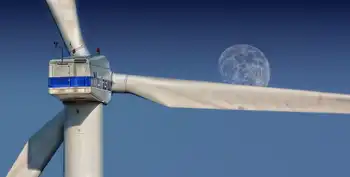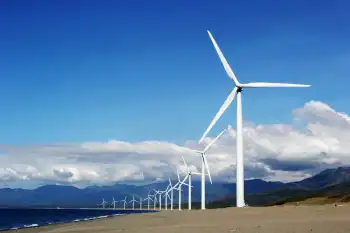Bush will announce proposal for nuclear fuel ban
By New York Times
Arc Flash Training CSA Z462 - Electrical Safety Essentials
Our customized live online or in‑person group training can be delivered to your staff at your location.

- Live Online
- 6 hours Instructor-led
- Group Training Available
In an afternoon speech at the National Defense University, they said, Mr. Bush will call for a re-examination of what one official called the "basic bargain" underlying the Nuclear Nonproliferation Treaty: that those states that promise not to pursue nuclear weapons will receive help in producing nuclear fuel for power generation.
Iran admitted last year that it had cheated on that agreement for 18 years, secretly building uranium enrichment facilities, though the country denied that it intended to produce weapons. North Korea abandoned the treaty last year and declared it was making nuclear arms.
Dr. Khan's network secretly sold equipment to both countries, and to Libya, American and Pakistani officials have said.
The administration officials said Mr. Bush would not call for a reopening of the 1970 treaty, which one said would be "too hard." Instead, he will appeal to the Nuclear Suppliers Group, 40 countries that sell most nuclear technology, to refuse to sell equipment to any country that is not already equipped to make nuclear fuel, either by enriching uranium or by reprocessing spent fuel for plutonium.
But the officials did not describe any new enforcement mechanisms.
In a briefing on Tuesday evening, one administration official said Iran and North Korea were examples of "regimes which have cynically exploited loopholes in the existing treaty" to build up their capacity to produce weapons-grade nuclear fuel.
While proliferation experts have long agreed that the treaty is flawed, Mr. Bush's proposal is bound to raise protests from developing nations, which say the United States and, by extension, the other declared nuclear states — Britain, France, Russia and China — are trying to extend their rights to produce weapons while denying that status to other states.
In addition to those five, Israel, India and Pakistan have nuclear weapons, and North Korea is believed by American intelligence agencies to have at least two and perhaps several more.
Israel is a particularly difficult case for the United States because it has never declared its nuclear ability and has never signed the nonproliferation treaty. Its Arab neighbors and Pakistan have said that any reopening of nuclear regulation should start with forcing Israel to sign the treaty.
In the briefing, the official also said Mr. Bush would discuss for the first time the details of how Dr. Khan's network operated, being careful to praise President Pervez Musharraf of Pakistan and to portray Dr. Khan, the former head of Khan Research Laboratories, as a rogue scientist.
Another administration official said Mr. Bush would cast the Khan case as a victory for American intelligence operations, describing "how we uncovered the reach of the network, how we identified the key individuals, how we followed the key transactions, and how we monitored the movement of material and recorded conversation and penetrated operations."
The director of central intelligence, George J. Tenet, made a similar case last week, and administration officials clearly hope the story of the intelligence surrounding the Khan network will be a counterpoint to criticisms of how Iraq's weapons program was misjudged.
Mr. Bush is also to identify B. S. A. Tahir, a Sri Lanka-born trader who moved to Dubai as a child, as the "other major node" in the Khan network.
It was Mr. Tahir, who divides his time between Kuala Lumpur and Dubai, who negotiated with a Malaysian company called Scomi to produce parts for high-speed centrifuges, which enrich uranium, Scomi officials have said. It was the interception of one such shipment to Libya in October that allowed American intelligence officials to present Pakistan with evidence about Dr. Khan.





